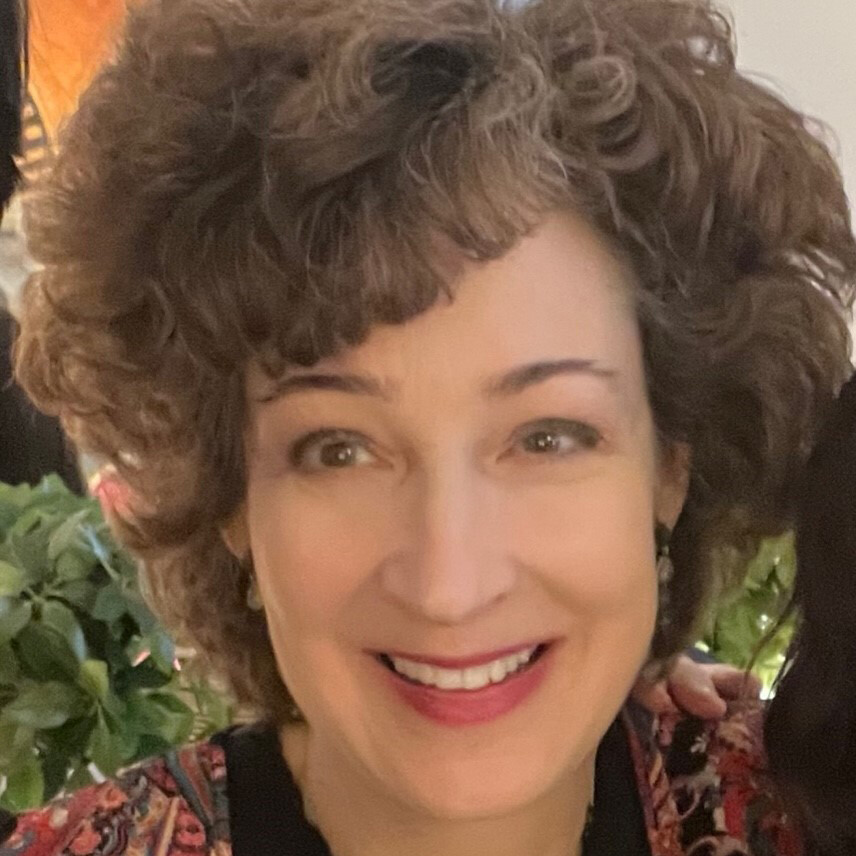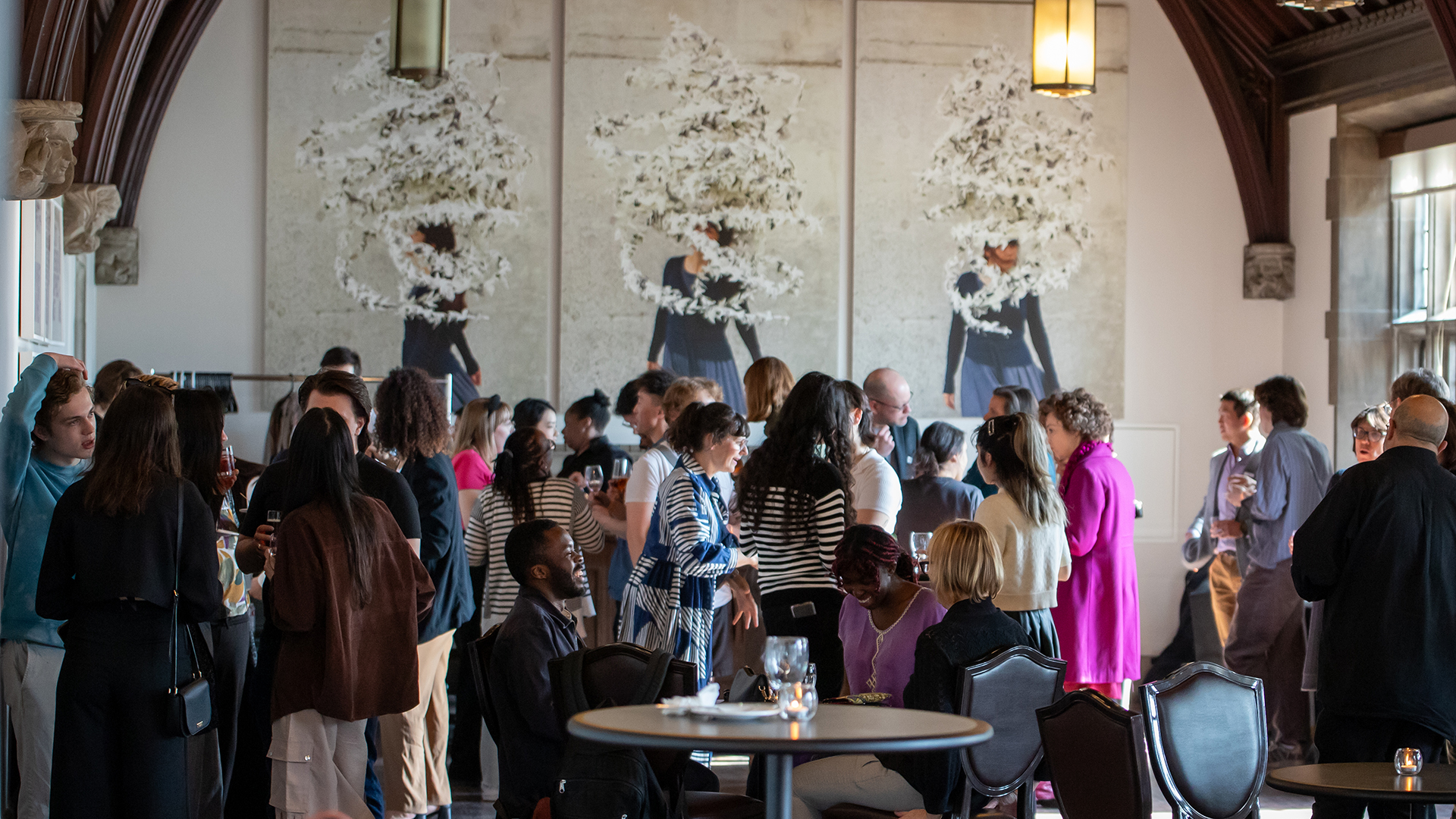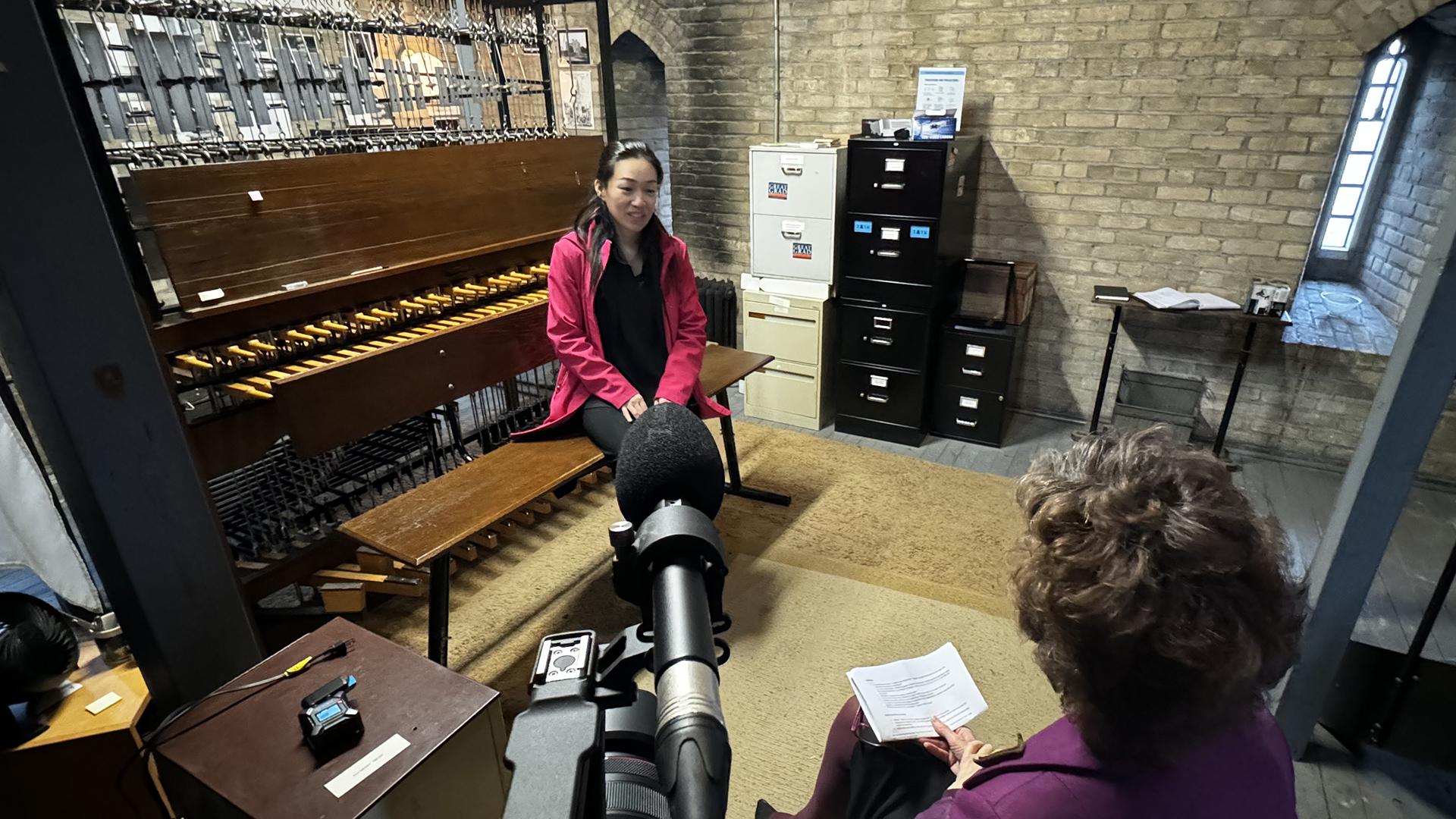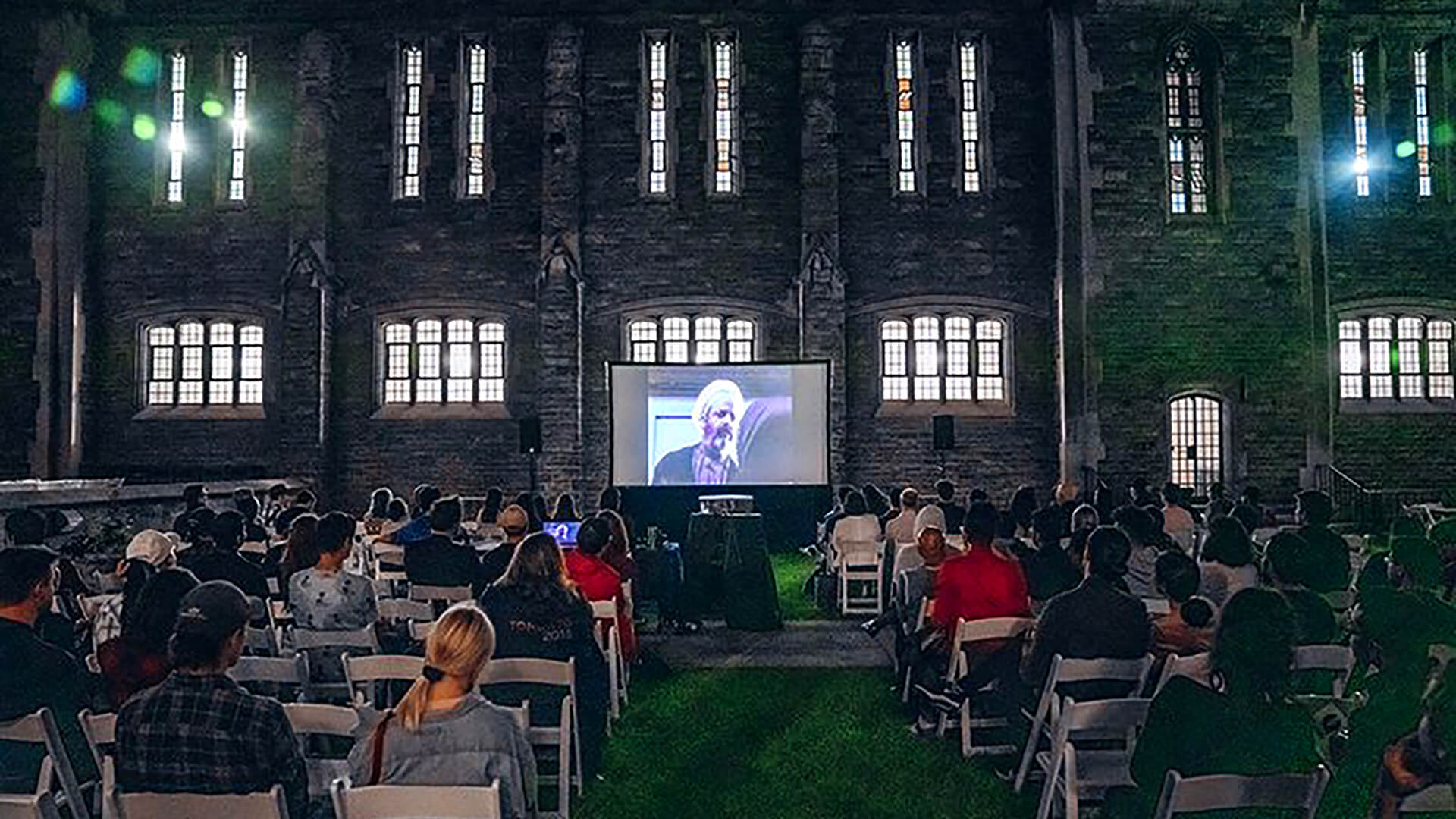Rightfully dubbed an “Indigenous powerhouse” by the Toronto Star, PhD candidate Riley Yesno discusses her compelling work on how Indigenous youth can shape the future. Celebrated by Hart House as its Emerging Changemaker in 2022, she emphasizes the galvanizing sense of community she discovered at U of T and Hart House.

Queer Anishinaabe scholar, writer and commentator from Eabametoong First Nation, Riley Yesno is a rising intellectual giant ‒ a perfect fit to become Hart House Emerging Changemaker (2022). This series showcases University of Toronto students who are making an impact in the community and around the world. These individuals inspire, lead, innovate and embolden others. Indeed, Changemakers have a keen focus on creating meaningful contributions to our community to make it a more equitable, inclusive and just society.
Riley is definitely one to watch. The U of T grad student is a Vanier Scholar (2022) and, the year prior, she received the President’s Award for Outstanding Indigenous Student of the Year, in recognition of her impressive academic record and a vast list of achievements beyond the classroom.
Joining and Leaving the Prime Minister’s Table
Her story began in high school when she was appointed to the Prime Minister’s Youth Council. “I was really coming into political consciousness,” she explains. “Although, I didn't know what I wanted to do in university or with my life generally. I’m sure many 17-year-olds feel similarly.”

From 2017 to 2019, Riley participated in the Youth Council, as one of the youngest members, looking for what she called “changemaking on a completely different scale.”
At first, she was optimistic. “I really did think that this was the vehicle of change.” But this feeling altered over time. “I realized that the vision of politics I had been sold was a very romantic one. When I left those meetings, I left distressed, feeling like I wasn't listened to, feeling that the promise of change was not coming. So, I ended up quitting.”
The act of quitting represented a pivotal point in her thinking. “It was a lesson in where power really lies. It led me down the path that I'm on now. Young people took me in, under their wings, and said we've been doing activism outside of the halls of government. Let's teach you some of our strategies and ethics.”
PhD Will Ask Indigenous Youth about the Way Forward
These ideas propelled Riley toward her PhD, directly after completing her BA (majoring in Indigenous studies and political science) at U of T. At 20 years of age, she is one of the youngest in the poli sci PhD program, having skipped her Masters.
She shares the hypothesis of her work: “I’m examining the so-called Reconciliation Era that we're in now and the Reconciliation Generation – that is, my age cohort and younger,” she says, noting that it was her grandparents and parents who initiated Reconciliation, led the critical assessment of Residential Schools and much more.
Riley’s generation, by contrast, has had a different experience. “I grew up hearing Stephen Harper's apology and Land Acknowledgements and Orange Shirt Days,” she explains, “so Recognition is no longer the site of struggle for Indigenous youth.”
This raises powerful questions, such as, “What does it mean to be giving a Land Acknowledgement if Indigenous people can't live healthy lives on that land?”
These are some of the compelling queries she plans to ask Indigenous youth, and bring to the fore in sharing circles, as part of her PhD. She wants to know young people’s critical thoughts about Reconciliation and the pathways they see to move forward.
Riley stresses how important it is that Indigenous youth are driving their own story. “We're often written about more than we are actually doing the writing and determining that narrative.”
She also plans to write a book, The Reconciliation Generation, which will be less academic and more personal. “It’s about how I came into my relationship with Reconciliation,” she explains.
U of T and the Connection between Education and Empowerment
The first on her father’s [Indigenous] side of the family to earn a degree, Riley values the higher education experience that brought her to Toronto – “the centre of the universe,” she jokes – from Northern Ontario.

She chose U of T with intention and forethought, and the education she received had an impact. “Earning my BA was an achievement beyond the piece of paper that you get at the end of it.”
At U of T, she connected with a larger Indigenous community both on and off campus. “It really taught me a lot. I don't think I would have got as much as I did out of the experience if I’d gone to another university."
“It taught me about solidarity. It taught me about how to make life outside of what might be your original territory. When you're not born into a community, how do you build it? Those were the lessons I took from the university experience.”
“Especially Honoured” by Hart House
Hart House, to Riley, is a big part of that community-building experience. “It’s the heart of U of T,” she says of the House, noting that many students feel the same way. “It, for me, has been the place that resonates with that community feeling.”
She has participated in a number of key events at the House, including moderating a panel with some esteemed thinkers in the Indigenous community.
Riley was deeply moved to be recognized by Hart House as an Emerging Changemaker. “It's very flattering,” she says modestly, emphasizing how important it was to her that young people, students, interviewed her as part of the selection process. “I always value hearing from my peers. […] I feel especially honoured.”
Real-World Advice to Students
Early on, people often gave Riley some generic advice: “Find your passion.” Although positive, it was frustratingly vague. “What does that actually mean? How do I do that?” she wondered.
So, she has reframed the pursuit of passion to make it more concrete or immediate: “When you lay your head down on the pillow at night, it’s the thing that keeps you up at night, the thing about which you have many questions. That imagery is a little more instructive on how you actually find your passion and achieve your goals, in a real way.”
What keeps Riley awake at night? “Indigenous people, the state of our communities and where we're going to take our communities.” This, in conjunction with her robust insights, both personal and academic, will surely fuel and empower today’s and tomorrow’s Indigenous thought leaders.
Ways for students to connect: Check out Hart House’s Clubs, such as the Hart House Film Board or the Hart House Chess Club; and Committees, including the Hart House Students Social Justice Committee.





